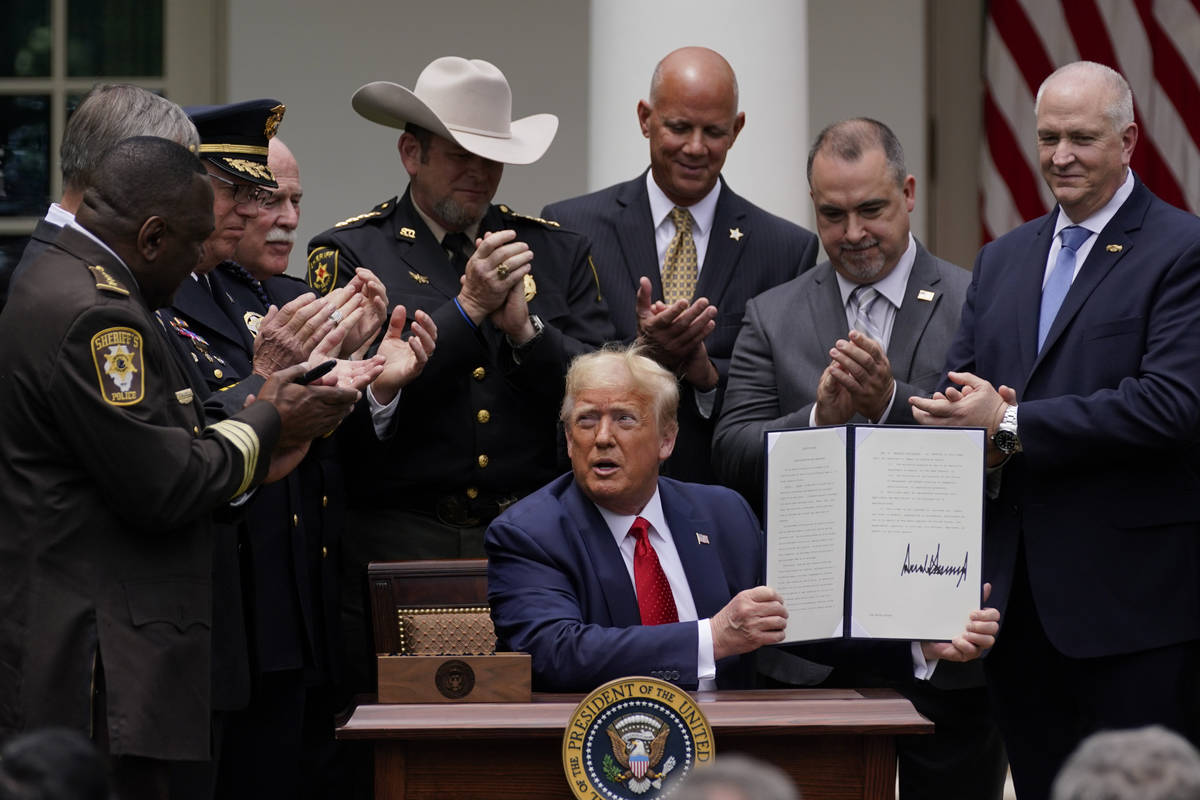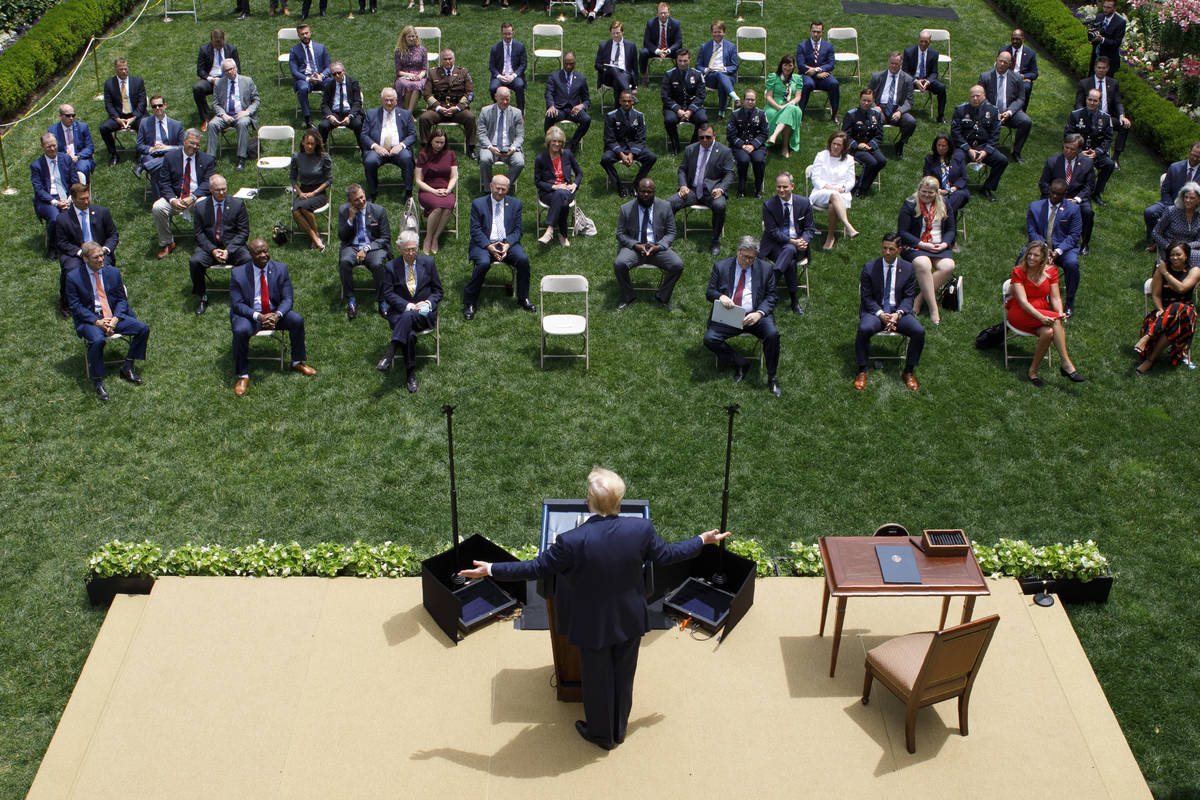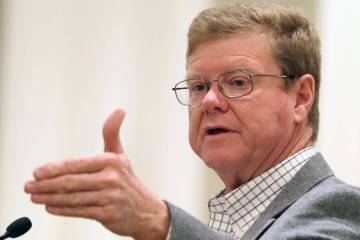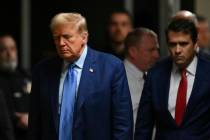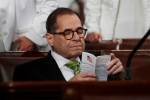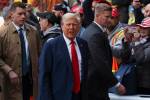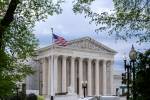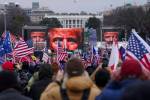Trump signs executive order on police reform
WASHINGTON — President Donald Trump on Tuesday signed an executive order meant to prevent the deaths of black men at the hands of bad police officers, a group Trump said is a “very small percentage” of all cops.
“I can never imagine the pain or the depth of your anguish, but I can promise to fight for justice for all of our people,” Trump said of black families. He met with family members privately before the signing to hear how their loved ones had died and what could be done to prevent future tragedies.
One example: Trump said that under a new process, “chokeholds will be banned, except if an officer’s life is at risk.”
At the same time, Trump recognized attacks on police during recent riots and looting that followed George Floyd’s death in Minneapolis, violence that left two members of law enforcement dead and hundreds of officers injured.
Trump recognized Las Vegas police officer Shay Mikalonis, not by name, but as an officer who was shot in the head and “is now laying in a hospital, almost totally paralyzed.”
“We will have reform without undermining our many great and extremely talented law enforcement officers,” Trump said as he signed the executive order.
Best practices
The document lays out guiding principles on chokeholds, best police practices, and working with social workers in situations that involve homeless people and substances abusers.
The order also directs Attorney General William Barr to create a database that would track civil judgments for excessive use of force to hinder officers with bad records from jumping to new jurisdictions.
ACLU Executive Director Anthony Romero said: “In over 20 minutes of prepared remarks, the president said the words ‘race’ once, and ‘black’ six times. Most telling, President Trump never used the word ‘racism’ — not once — at this historic inflection point.”
“What’s wrong with this picture? The president had a veritable beauty pageant of law enforcement officers behind him as he signed an executive order that was supposedly meant as a response to the public outcry of recent weeks,” Romero added.
House Majority Leader James Clyburn told Fox News that Trump’s order was “much too little and does not go far enough.”
Former Vice President Joe Biden responded along similar lines. In a Twitter post, the Democratic presidential nominee responded, “Systemic racism pervades every part of our society including law enforcement – and we have to do the hard work to root it out.”
Biden’s tweet also included a video of a January chat between Biden and a black field organizer named Jake who told of growing up wanting to be a police officer only to find himself as an adult who saw police as people he wants to be protected from.
Need more black officers
It is a problem also recognized by Ja’ron Smith, an African-American deputy assistant to the president who worked on the order. After the signing, Smith told reporters that the goal is to build trust.
“Why are more young black boys not growing up to be cops? Because that trust is not there,” Smith said. “And we can restore that trust. Because you know what? We need black boys to be police.”
Derek Cohen of the group Right on Crime, which has worked with the White House on federal criminal justice reform, praised the executive order for using federal authority to encourage locals to modernize and improve training.
“I think it’s a good first step,” he said, adding that “it operates within the bounds” of what the White House can do to encourage local officials to update their policies. It so happens, said Cohen, that many law enforcement leaders have been advocating for more federal support in the direction Trump set forth.
The next step is for Congress to craft a bill, which is likely to involve a tug-of-war in the Democratic House between progressives and old-school liberals. Sen. Tim Scott of South Carolina, the only black Republican in the Senate, also will have to battle colleagues who seem in no hurry to pass a bill.
While the families of Ahmaud Arbery, Botham Jean, Antwon Rose, Jemel Roberson, Atatiana Jefferson, Michael Dean, Darius Tarver, Cameron Lamb, and Everett Palmer did not attend the Rose Garden signing, Smith said that ideas such as de-escalation training and mental health co-responders, “all of these ideas came from the families and we got consensus from them and law enforcement.”
“It was a mutual decision because it really wasn’t about doing a photo opportunity,” Smith added. “We wanted the opportunity to really hear from the families and protect them.”
An earlier version misspelled the first name of Shay Mikalonis, the Las Vegas police officer who was shot during a protest.
Contact Debra J. Saunders at dsaunders@reviewjournal.com or 202-662-7391. Follow @DebraJSaunders on Twitter.



